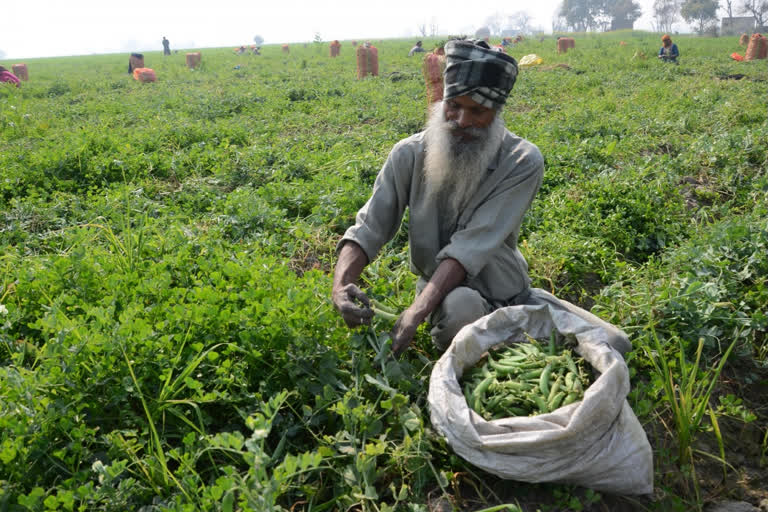Hyderabad: 'Hum Hi Kisan… Hum Hi Jawan' is the slogan of the farmers agitating for the repeal of the controversial farm laws. The fact remains indisputable that the farmer protects the food safety of the country like a soldier protects its frontiers. The plough of the farmer helped sow the seeds of our civilization and made agriculture the national culture.
The farmer either quietly endured or killed himself with pesticide when the crop emerging from his hard toil was lost to natural calamities or when he was duped by the market forces. One should ponder why he has taken the route of agitation against the laws.
Prime Minister Modi is contending that the laws were meant for the benefit of farmers. He is correct in the contention that the nearly 51 per cent of the farmers in the country owned less than two and half acres of land in the country in 1971 and their number has risen to 68 per cent in the present day. He has also mentioned the fact that those owning less than 2 hectares of land constituted 86 per cent of the farmers in the country. In order to benefit such small and marginal farmers, the mandis which are infested with middlemen, should be reformed. What will the poor farmer gain by a uniform market across the country?
The nation deserves proper reforms to improve the condition of farmers as more than three lakh ryots have committed suicide in the country in the past twenty five years. However, the farm laws brought into being without consulting states or farm unions at any stage do not come under that category of proper reforms.
Read: Congress will scrap farm laws if elected: Priyanka
Farmers fear that their very existence will be imperilled by the new laws. Farmers are not in a position to bear any more bad things. Laws that are beneficial to the nation should be formulated now by consulting states and farmers, instead of hardening the stand by taking it as a matter of prestige.
Ever green revolution is possible in the country only when governments stood guaranteed to the welfare of farmers. The Green revolution was unveiled in the country because of the mechanism established for the provision of minimum support price during Lal Bahadur Shastri's tenure. Agriculture mandis and FCI procurements which became the backbone of support to the farmer also became a reality in that period. The vision of Verghese Kurien, who became renowned as the father of White Revolution, helped turn dairy into a Rs 8 lakh crore industry in the country and contributed a great deal to rural development. Similar vision for agriculture is required to be pursued by the state and central governments.
The farming community fears that the mandi system will collapse under the impact of the new laws that pave royal roads for the entry of corporate companies into the agriculture sector. They also fear that the MSP regime will cease after FCI stops procuring grains. Instead of treating the agitation as something confined to a few states and instead of attributing ulterior political motives to it, the Centre should design and develop a strategy which will help make the country become self-reliant in the field of agriculture.
Read: I am proud 'andolan jeevi', says Chidambaram
The Union Finance Minister had announced in May last that NABARD will make available a fund of Rs 1 lakh crore to support value addition to farm produce before it is exported to international markets. The Centre is stating that Rs 1.15 lakh crore were deposited in the bank accounts of farmers under the Kisan Samman Nidhi. If that sum was diverted to the infrastructure development activities like construction of cold storage facilities, the farmers would have been greatly benefited.
A special mechanism should be brought into being to prepare a foolproof master plan which will take into account the domestic requirements and the opportunities in the international markets. The Indian farmer can be rescued only when the government acts on a war-footing to extend MSP as per Dr Swaminathan Commission recommendations and makes arrangements to recover the MSP expenses through the export of farm products.



